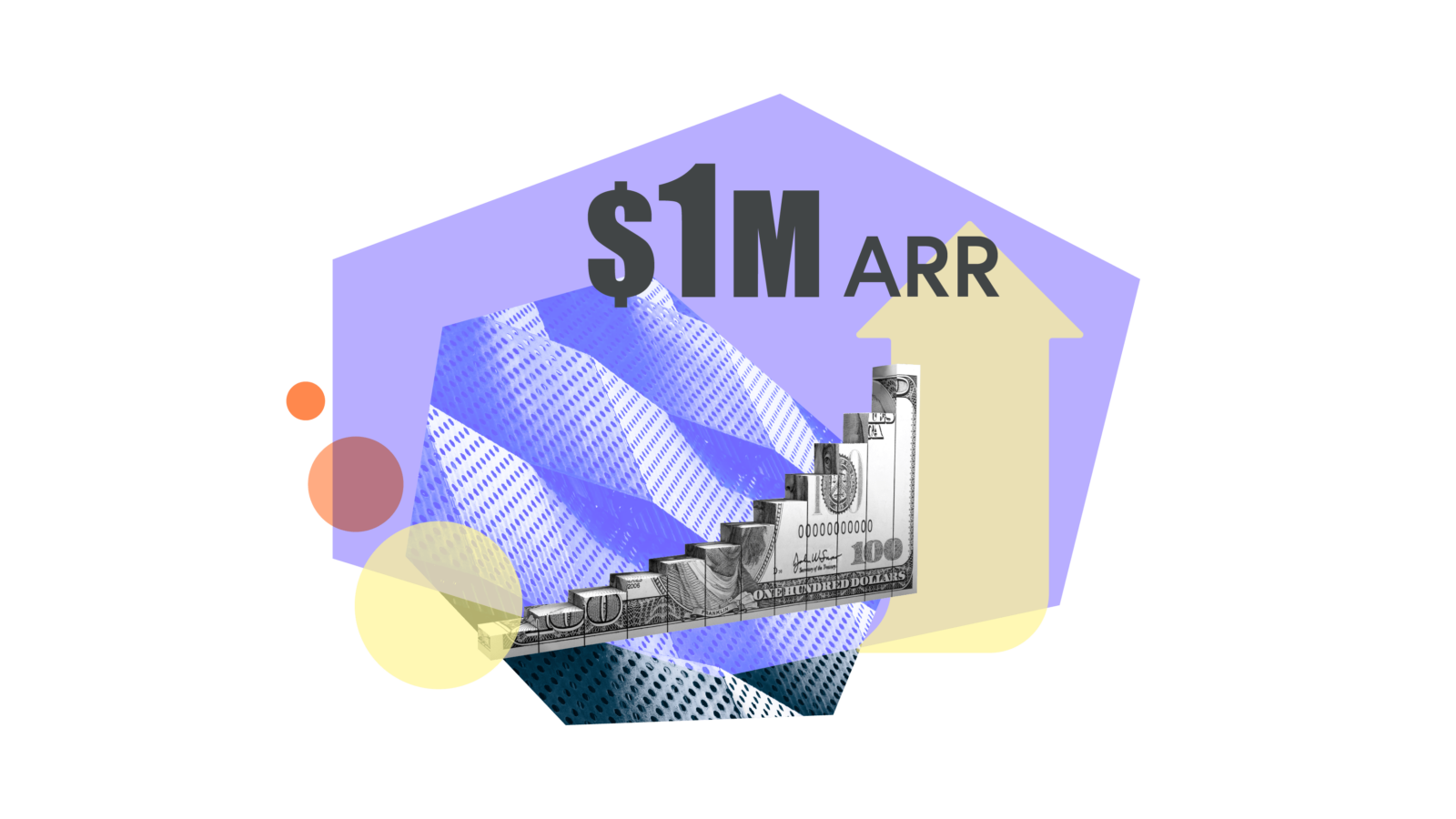Okta CEO Todd McKinnon on powering through your darkest days until, finally, the category is born
Okta’s founding CEO on going all in, having a backbone, and what it’s like to be told you’re crazy for years until suddenly, you’re not.
It was 1995 and, computer engineering diploma hot off the press, Todd McKinnon accepted a job at a then small software firm called PeopleSoft. And then, at another startup called Salesforce. He spent the first thirteen years of his career at those two companies, rising through the ranks to eventually lead a team of 300 developers.
“I kept getting great, challenging projects at PeopleSoft. I loved that company. At Salesforce, same thing. Great team, great company,” says Todd. But watching the market evolve, he realized he desperately wanted a shot at building his own thing.
This was the early 2000s and the cloud trend was approaching escape velocity. “Being a part of Salesforce, seeing everything take off—AWS, Google Apps—it was clear to me there was going to be a cloud version of everything in the stack.” This was less clear to investors and the market however, and he suffered through and eventually overcame the curse of being ahead of his time.
In this deep dive conversation, Todd shares Okta’s 12-year journey from mockups in Balsalmiq to a $25 billion public company, and why success in entrepreneurship may be more binary than you think.
To start, quit and find a co-founder
When the urge really set in, Todd was experiencing two polar opposite life events. On the one hand, his wife had just given birth to their first child. On the other, he’d been diagnosed with Type 1 diabetes, a chronic condition he’d forever need to manage. Life suddenly felt vivid and brief. He had to act. It was 2008.
“The first difficult thing I did was tell my wife,” says Todd, chuckling. “I distinctly remember coming home from work. She had our daughter in her arms and she could tell something was up. I said, “I have to quit my job to start a company.” She’d been watching the news where Lehman Brothers was collapsing and her response was, “Are you crazy?’”
So Todd did what any rational engineer would: He made a PowerPoint presentation weighing the pros and cons titled “Why I’m Not Crazy.” In it, he laid out a vision that, in retrospect, was visionary, outlining a view of the public cloud that has since been validated. And so he began.
“I believe you have to quit to start. It’s really, really hard to do this full-time,” says Todd. “And the other part of it is you have to find at least one co-founder. It’s a tough job and the odds are long. It’s high stress. You’ve gotta do it with someone you can make a great team with.”
That person for Todd was Freddy Kerrest. They’d worked together at Salesforce and set about building Saasure—an “intelligent and integrated cloud area network” to monitor software products. They pitched lots of investors, including Marc Benioff, CEO of Salesforce, who wasn’t sure about the concept but loved the term. “He said, ‘That cloud area network. Who thought of that? That's a good idea. You got to go with that,’” laughs Todd, recalling that Marc was among the few.
Todd and Freddy talked to 100 CIOs and IT people and while some were interested, it seemed that what they wanted to build was only applicable to very large and complex environments. What did come from those conversations was the fact that time and time again, administrators had basic problems with identity. “They were trying to manage local area networks and they often couldn’t log in. It was simple stuff. They didn’t have visibility. That kept coming up.”
Todd and Freedy pivoted the business throughout these conversations until it became the genesis of Okta, for identity management.
When you’re going through hell, keep going
Okta is part of Bessemer Venture Partners’ anti-portfolio—the companies this firm failed to invest in—and the fault for this one lies with your author. Back then, the conversations Todd was having with this firm at that time reflected a lot of the market. The need and go-to-market just wasn’t as clear to investors as it was to Todd and Freddy. (Though, I’m glad to report that we hopefully made it up to the founders when Okta purchased Bessemer-backed Auth0 for $6.5 billion in 2021!)
“If I can give advice to investors, it’s that when you tell entrepreneurs you aren’t going to invest, that conversation is going to be very vivid. It is existential for them. They are going to remember it forever,” says Todd. “You can do them a tremendous favor by being straightforward. Byron, you were straight with me,” he shares. “I remember feeling really grateful for that, because I felt like I was getting the runaround elsewhere.”
Compounding investors’ lack of foresight was of course the global financial crisis. Todd was raising during one of the worst times possible. Looking back, he says he was sweating too much of the small stuff. “I remember being really concerned about valuation and dilution,” he says. “The first piece of advice I now give people is don’t get too hung up on dilution or ownership. Entrepreneurship is somewhat binary. You’re going to be very, very successful, or you’re not. It’s better to optimize for who’s the best partner with the right expertise.”
Todd recalls those early years as lonely. “Being innovative is by definition to be lonely. You have people questioning if it’s going to work, investors scrutinizing the efficiency of the payback,” he says. His team was trying things in marketing and board members were telling them that they didn’t understand marketing. But years into their journey, a miraculous thing happened. The world’s largest software company, Microsoft, started pushing Microsoft 365, it’s cloud-based suite of work tools, which necessitated an identity management product like Okta. Then Microsoft launched a competitive product.
Todd was more thrilled than afraid because this move validated their market practically overnight. “One day it will flip. You’ll go from a lonely category creator to owning the whole thing. All that pain is paid off—you’re the de facto leader,” says Todd. “And all that marketing you were doing that people thought was bad? Suddenly it works.”
Accept advice, but have your own backbone and vision
“There’s going to be areas where you have no idea. For me, that was go-to-market. That’s where you need advice, but you can’t run a company on advice alone,” says Todd. “You have to balance it all with having your own backbone. The big skill of accepting advice is knowing which pieces to listen to and which to ignore.”
During what Todd calls Okta’s early dark days, he learned to shed some things he’d learned at Salesforce. As an internal leader, he’d developed a posture of being the master and having all the answers, because to a degree, he did. Now he realized it was more valuable to admit that he didn’t have them. At a critical juncture before they had enough paying customers, he laid out the situation to all 30 employees—how they’d missed their revenue target, what they knew, what they didn’t know, and how they could rally. Then, he got focused.
“People were telling us identity wasn’t big enough, that we were really just part of another platform,” he says. “My response was to say let’s do whatever it takes to get five live customers. Forget funding rounds. Forget what we charge. Five live customers.”
By year’s end, they reached their five, and increased the number to 50. When they got there, the goals expanded and evolved into conversations about efficiency, retention, deployment success, and churn.
“You have to balance off that advice you’re getting with a self-awareness that you're not the expert with also having your own backbone and vision for what you think should happen,” says Todd. “It has to come from you.”
Those who succeed have an obligation to give back
As CEO of a multi-billion dollar public company Todd feels strongly compelled to share that success. “I feel a real obligation to use that success in a positive way, through Family House, a non-profit that provides temporary housing to families of sick children, through Pledge 1%, and through our philanthropic arm, Okta for Good,” says Todd. “It's been really important to me that as we benefit from all this environment we're in, and use our time, talent, and money to make the society we live in a better place.”





